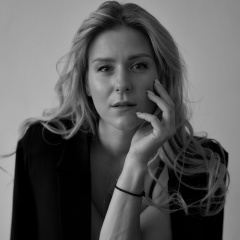О благотворительности начистоту
Один знакомый однажды дал мне характеристику, что я занимаюсь благотворительностью, чтобы быть сильнее, мол на фоне слабых подопечных я кажусь сильнее. Кстати, мне лично он это сказать не смог, я узнал от другого человека.
Он и прав и не прав одновременно. Ща расскажу.
По опыту я вижу, что этот этап проходят все, кто начинает заниматься благотворительностью. И этап этот важный, главное - не залипнуть в жалости к себе и подопечным.
Я отслеживал свои состояния и мысли, своих друзей. И вижу, что пройдя этот этап, начинается осознанная благотворительность.
Совершенно иначе смотришь на все:
- госмашину опеки
- благотворительные фонды и орг-ии
- подопечных
Смотришь прагматично, шаги становятся основательнее, руки наполняются теплом, волнение уходит. А при очередной поездке в ПНИ видишь за сотрудниками и подопечными - личностей, которым очень не просто, у каждого своя битва за счастье.
Жалость должна сдохнуть, ей надо дать время выйти, переработаться в любовь и конкретные дела, научиться общаться.
Это прочищает мозг лучше психологов и тренингов. Так что этап жалости - важный и полезный.
На фото - праздник в интернате, который делали в это воскресенье движение Волна Добра, которому мне радостно помогать уже 2 года.
А что думаете о жалости и благотворительности Вы?
Что вы видите в глазах жителей интерната на фото?
Может, есть вопросы, например, с чего начать?
Отвечу
volnadobraspb
Один знакомый однажды дал мне характеристику, что я занимаюсь благотворительностью, чтобы быть сильнее, мол на фоне слабых подопечных я кажусь сильнее. Кстати, мне лично он это сказать не смог, я узнал от другого человека.
Он и прав и не прав одновременно. Ща расскажу.
По опыту я вижу, что этот этап проходят все, кто начинает заниматься благотворительностью. И этап этот важный, главное - не залипнуть в жалости к себе и подопечным.
Я отслеживал свои состояния и мысли, своих друзей. И вижу, что пройдя этот этап, начинается осознанная благотворительность.
Совершенно иначе смотришь на все:
- госмашину опеки
- благотворительные фонды и орг-ии
- подопечных
Смотришь прагматично, шаги становятся основательнее, руки наполняются теплом, волнение уходит. А при очередной поездке в ПНИ видишь за сотрудниками и подопечными - личностей, которым очень не просто, у каждого своя битва за счастье.
Жалость должна сдохнуть, ей надо дать время выйти, переработаться в любовь и конкретные дела, научиться общаться.
Это прочищает мозг лучше психологов и тренингов. Так что этап жалости - важный и полезный.
На фото - праздник в интернате, который делали в это воскресенье движение Волна Добра, которому мне радостно помогать уже 2 года.
А что думаете о жалости и благотворительности Вы?
Что вы видите в глазах жителей интерната на фото?
Может, есть вопросы, например, с чего начать?
Отвечу
volnadobraspb
About charity to be honest
One acquaintance once gave me a characteristic that I do charity work in order to be stronger, saying that against the background of weak wards, I seem stronger. By the way, he personally could not say this to me, I learned from another person.
He is right and wrong at the same time. I'll tell you.
From experience, I see that everyone who begins to engage in charity goes through this stage. And this important stage, the main thing is not to get stuck in self-pity and wards.
I tracked my states and thoughts, my friends. And I see that after passing this stage, conscious charity begins.
You look at everything completely differently:
- state guardianship machine
- charity foundations and organizations
- wards
You look pragmatically, steps become more thorough, hands are filled with warmth, excitement goes away. And on the next trip to the PNI, you see employees and wards - personalities who are not easy, each has his own battle for happiness.
Pity must die, it must be given time to go out, be processed into love and concrete affairs, and learn to communicate.
This cleanses the brain better than psychologists and trainings. So the stage of pity is important and useful.
In the photo there is a holiday in a boarding school, which was made this Sunday by the Wave of Good movement, which I have been joyfully helping for 2 years.
What do you think about pity and charity?
What do you see in the eyes of the residents of the boarding school in the photo?
Maybe there are questions, for example, where to start?
I will answer
volnadobraspb
One acquaintance once gave me a characteristic that I do charity work in order to be stronger, saying that against the background of weak wards, I seem stronger. By the way, he personally could not say this to me, I learned from another person.
He is right and wrong at the same time. I'll tell you.
From experience, I see that everyone who begins to engage in charity goes through this stage. And this important stage, the main thing is not to get stuck in self-pity and wards.
I tracked my states and thoughts, my friends. And I see that after passing this stage, conscious charity begins.
You look at everything completely differently:
- state guardianship machine
- charity foundations and organizations
- wards
You look pragmatically, steps become more thorough, hands are filled with warmth, excitement goes away. And on the next trip to the PNI, you see employees and wards - personalities who are not easy, each has his own battle for happiness.
Pity must die, it must be given time to go out, be processed into love and concrete affairs, and learn to communicate.
This cleanses the brain better than psychologists and trainings. So the stage of pity is important and useful.
In the photo there is a holiday in a boarding school, which was made this Sunday by the Wave of Good movement, which I have been joyfully helping for 2 years.
What do you think about pity and charity?
What do you see in the eyes of the residents of the boarding school in the photo?
Maybe there are questions, for example, where to start?
I will answer
volnadobraspb






У записи 23 лайков,
2 репостов,
613 просмотров.
2 репостов,
613 просмотров.
Эту запись оставил(а) на своей стене Илья Минаев












































